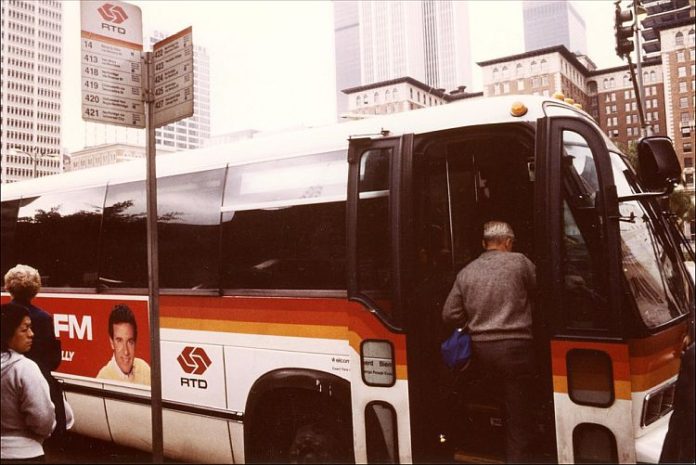★ The Sports Examiner: Chronicling the key competitive, economic and political forces shaping elite sport and the Olympic Movement.★
★ To get the daily Sports Examiner Recap by e-mail: sign up here! ★
≡ INTEL REPORT ≡
Harsh words seem to be the norm in the Olympic Movement today. Between the International Olympic Committee and Russia, the IOC and the International Boxing Association, World Athletics and Russia and the World Anti-Doping Agency and the U.S. Anti-Doping Agency, the New York Times and others, just to name a few.
Now you can add in the Chair of the Orange County Board of Supervisors in California, aiming at the Los Angeles Metropolitan Transportation Authority, known as Metro.
In an editorial posted on Friday, O.C. Supervisor Donald Wagner – formerly a California State Assemblyman and the Mayor of Irvine – blasted the current transit concept for the 2028 Olympic Games in Los Angeles:
● “In only four short years, the Olympics come to LA, meaning Mayor [Karen] Bass and the Olympic organizers have just four years to transform Los Angeles into a metropolis fit for the international attention brought by the Olympics. That seems like a big task for a city whose failed governance leaves it with rampant crime, homelessness, congestion, crumbling infrastructure, business and regulatory nightmares, and tax and budget shortfalls.
“The LA solution: a ‘car-free’ Olympics!
“Personal vehicles will not be allowed at Olympic venues. Private parking will simply not be available. Don’t even think about driving to an event.”
● “I serve on the board of the Orange County Transportation Authority (OCTA). We recently received a report from the Los Angeles County Metropolitan Transportation Authority admitting that it will miss the ’28 deadline for 10 of the 28 projects. Only five have so far been completed in the past six years of planning.
“Bass does not let this diminish her enthusiasm for a car-free Games. She promises that LA will purchase or borrow and then deploy 3,000 buses. I can’t imagine at what cost, both financial to Los Angeles, but also on other transportation agencies like OCTA and the people they serve around the country.
“That is a mammoth, market-warping diversion of resources – 3,000 buses – to just one city. Other places like Orange County can well expect to feel the pain caused by such a market disrupting force.”
Wagner’s prediction:
“Given the city’s deep-rooted car culture, the lack of public transit infrastructure, the long commutes that residents have come to accept as normal, and the sheer physical safety concerns, local residents will likely skip the Games rather than abandon their vehicles.
“Public transportation cannot rise to the occasion, as the LA Metro report frankly admits, leaving a potentially miserable experience for out-of-town visitors and a very bad lasting image for Los Angeles and the Olympics organizers. At least Orange County had nothing to do with these bad decisions, even if we will feel some of the consequences.
“A car-free Olympics was always an enviro-activist pipe dream.”
Observed: Wagner is trying too hard, and the ultimate success or failure of the 2028 Olympic and Paralympic transit system won’t be settled for a long time to come.
We have seen this before. The same calamity was predicted for the 1984 Games in Los Angeles and transportation went far more smoothly than had been predicted. This was due to multiple factors, and efforts by the Los Angeles Olympic Organizing Committee, the Southern California Rapid Transit District (the old name for Metro) and many others:
● Close attention was paid to those venues and specific days which were subject to significant congestion, especially in and around downtown Los Angeles. The RTD set up six special park-and-ride lots and two more shuttle lots, and the instructions delivered with tickets – paper tickets then – STRONGLY encouraged $6-each-way bus use to actually arrive at the Exposition Park and USC area for track & field, boxing, swimming, diving and synchronized swimming.
● Special services were set up for UCLA, which had one of the Olympic Villages, but was also the site of gymnastics. The LAOOC offered its own shuttle services at a few venues which were not usually used for spectator events, such as at Coto de Caza for modern pentathlon and for the shooting venue in Chino. At the rowing and canoeing venue at Lake Casitas, preference was given to vehicles with 12 or more passengers, encouraging vanpools.
● For the other venues, where parking was not expected to be a significant problem, bus information was available, but no special pressure was exerted on ticket holders.
Most of the venues that will be used for 2028 – not all – are existing spectator event sites which handle crowds and parking issues year-round. They already know what will be required to make their sites work. This is a vastly underestimated aspect of the 2028 venue plan.
The Los Angeles bid for the 2024 Games, shifted to 2028, was not conditioned on any new transportation programs being introduced by Metro. There were none in 1984, but the RTD reported it added 500 buses to its fleet. What is needed is coordination between agencies and good communications with the public and especially with ticket holders.
As for Metro, L.A. City Council member Katy Yaroslavsky offered a true perspective into the opportunity that the 2028 Olympic Games offers to Metro. At a March 2024 meeting of the Metro Board, she explained:
“I’m thinking about 2028 as the drop-dead deadline for accelerating all the work we want to do.
“It’s also an excuse to go after federal funding and state dollars in a way we might not otherwise be able to do, and in my mind, a lot of that is going to be around first-mile, last-mile, delivering our priority transit projects, ensuring we’re not using dirty diesel buses for the Olympics, and, most paramount of all, of course, is housing for our unhoused population.”
That’s about Metro and the City of Los Angeles, not about the Games. The Games can be handled, and the question of how many cars parked where will go unquestioned and unremembered if the overall system works well.
As for pipe dreams, it’s already sure that pipe smoking will not be allowed at any 2028 Olympic or Paralympic venue.
¶
★ Receive our exclusive, weekday TSX Recap by e-mail by clicking here.
★ Sign up a friend to receive the TSX Recap by clicking here.
★ Please consider a donation here to keep this site going.
For our updated, 547-event International Sports Calendar for the rest of 2024 and beyond, by date and by sport, click here!


























